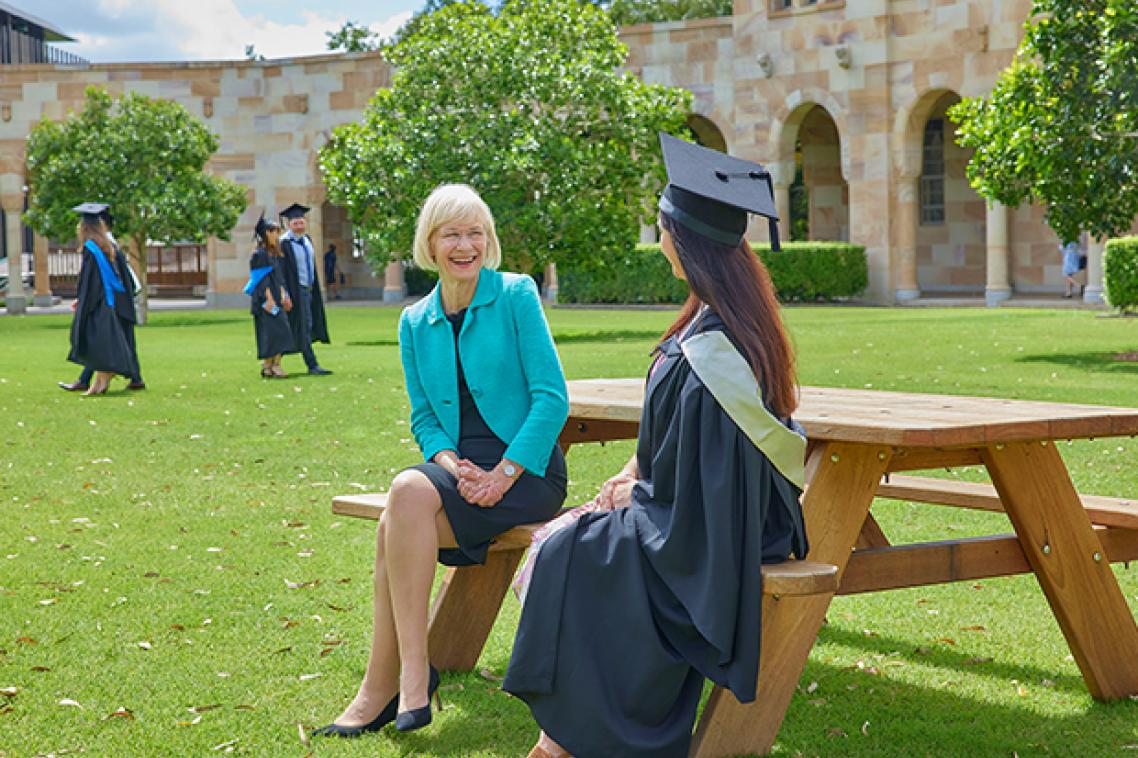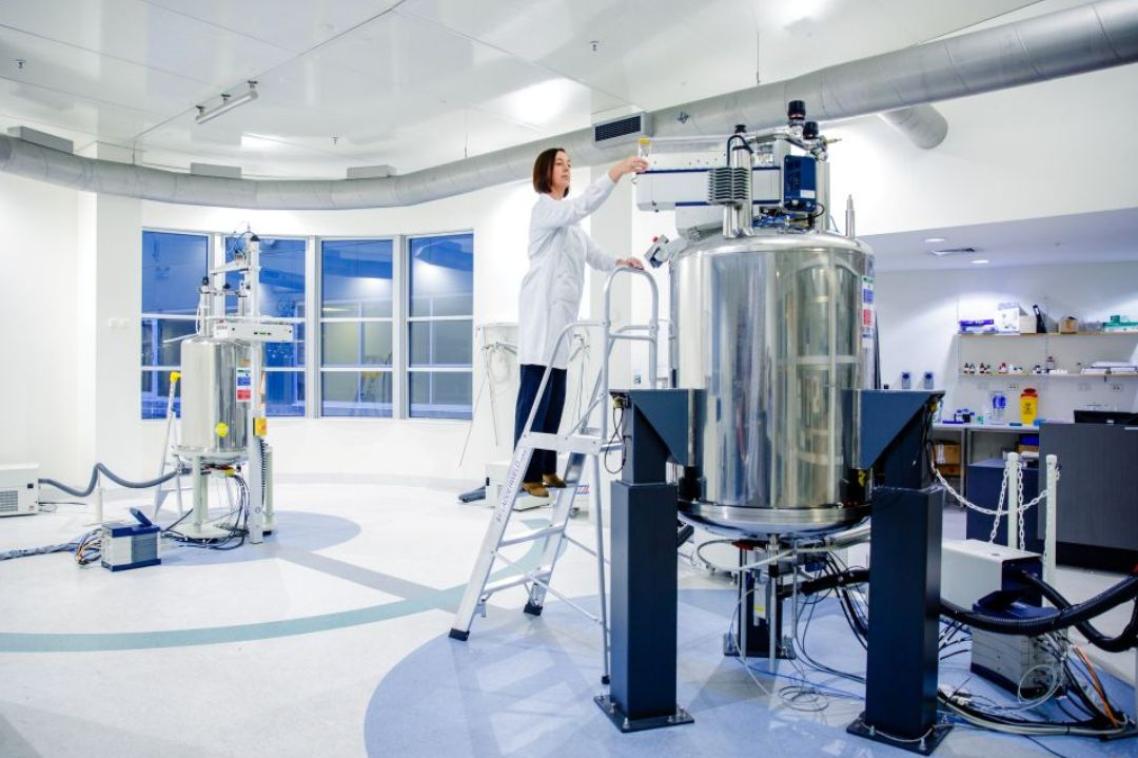UQ commits to Queensland’s future with nation-leading pledge

The University of Queensland has made a bold pledge to tackle educational disadvantage in the state by 2032, striving to remove barriers to help talented students from rural, remote and low socio-economic backgrounds access university.
The Queensland Commitment was officially launched at the opening of the University’s new CBD presence, UQ Brisbane City, in the heritage-listed former National Bank.
UQ Vice-Chancellor Professor Deborah Terry said access to university education should not be determined by where someone lived, or their background.
“Education and opportunity must be available for all Queenslanders and by 2032 we have committed to break down personal, financial and geographical barriers facing students aspiring to study at UQ,” Professor Terry said.
“The Queensland Commitment reaffirms the founding principles of the University, and underpins our commitment to work collaboratively with the community to deliver generational change across the state.”
At the core of the pledge is a focus on growing endowed philanthropic funding by 2032, doubling current levels in partnership with donors to provide sustainable, needs-based scholarships for generations of future scholars.
“Increasing access to scholarships will allow students to focus on their studies and ultimately enter the workforce, which will in turn help build a more prosperous state and economy,” Professor Terry said.
UQ aims to reach a target of 30 per cent of eligible domestic undergraduate students coming from regional, remote or low socio-economic backgrounds within 10 years, including efforts to ‘close the gap’ for Aboriginal and Torres Strait Islander students.
“Every eligible Queensland student aspiring to study at UQ must feel their goal is within reach and be supported through scholarships and services, from pre-enrolment through to graduation,” Professor Terry said.
“We will work with schools and community partners to grow high-impact pathway programs such as the Young Achievers Program and InspireU and enhance student services to support retention and completion.”
Professor Terry said The Queensland Commitment would be one of UQ’s legacies to the state.
“We believe we can make a difference by supporting Queenslanders to reach their potential - there is no greater investment than the people and the future of Queensland.”
UQ Brisbane City
Professor Terry said UQ Brisbane City would be the CBD ‘front door’ to the University for students, alumni, business, industry, government and researchers to network and collaborate.
The building at 308 Queen Street was constructed between 1881 and 1885 and opened as the head office of the former Queensland National Bank.

Global business leader and UQ alum, Dr Andrew Liveris AO said the University’s expanded city presence was timely.
“As we look at the ‘golden decade’ ahead, UQ Brisbane City will help to position our state to capitalise on the economic and social opportunities the Games will bring,” Dr Liveris said.
“It will help foster partnerships as we work together to tackle the complex economic, strategic, climate and technological challenges facing Queensland, and the nation.
“Education will be a key contributor to that success and UQ is at the forefront of delivering solutions for our future generations.”
UQ Brisbane City will be open to the public as part of the Brisbane Open House program on 27 and 28 August.
Media contact
UQ Communications
communications@uq.edu.au
+61 429 056 139
Related articles

UQ experts recognised for national impact

Anyone can be a hacker with AI – so what does that mean for the cyber defence industry?
Media contact
UQ Communications
communications@uq.edu.au
+61 429 056 139
